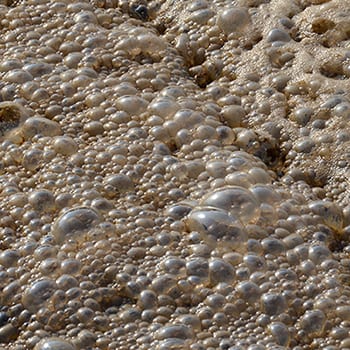The Function of Defoamers in Enhancing Product Quality and Performance
In numerous making procedures, the existence of foam can substantially hinder item high quality and operational effectiveness. Defoamers work as essential ingredients that mitigate this concern, making sure smoother production process while enhancing the useful and aesthetic features of the final items (defoamers). Their application spans a wide variety of industries, from food and drink to drugs, where uniformity and reliability are vital. The selection of the appropriate defoamer can be important to attaining optimal outcomes, elevating important concerns concerning solution compatibility and performance metrics that merit additional expedition.
Recognizing Defoamers
Recognizing the duty of defoamers is essential for maintaining product quality across various industries. Defoamers are chemical additives developed to minimize and stop the development of foam in liquid systems, which can adversely affect procedures such as blending, loading, and surface area tension. Foaming can result in ineffectiveness, product defects, and compromised visual allure, making defoamers an essential part in making operations.
In industrial applications, defoamers help to enhance item consistency and security. In the paint and coatings sector, foam can interfere with the application process and the last finish. In food and beverage manufacturing, too much foam can hinder bottling and product packaging effectiveness. The effective usage of defoamers not only guarantees smoother manufacturing processes however likewise adds to exceptional item performance.
Furthermore, the option and formulation of a defoamer need to align with certain application requirements, such as compatibility with various other ingredients, efficiency under differing temperature and pH conditions, and possible regulatory restrictions. Inevitably, understanding defoamers' features and their importance in different solutions is important for maximizing production and making certain the finest quality final product.
Types of Defoamers
Defoamers can be classified into numerous kinds based upon their composition and mechanism of activity. The key kinds include silicone-based, non-silicone organic, and inorganic defoamers.
Silicone-based defoamers are among one of the most reliable, primarily due to their capability to spread out promptly on the fluid surface area and interfere with foam formation. Their distinct chemical structure enables remarkable security, making them ideal for high-temperature applications and settings with differing pH degrees.
Non-silicone organic defoamers, typically made up of all-natural oils or fatty acids, are valued for their biodegradability and lower poisoning. These are normally made use of in food and drink applications where safety and security and ecological influence are paramount.
Not natural defoamers, that include materials like talc or calcium carbonate, act by increasing the thickness of the fluid, therefore lowering foam security. They are usually made use of in commercial procedures where compatibility with other materials is not a problem.
Each sort of defoamer has distinctive benefits and restrictions, permitting tailored solutions relying on the details lathering problems experienced in various applications. Recognizing these distinctions is important for enhancing performance and attaining preferred product quality.
Applications Throughout Industries
Many markets take advantage of defoamers to improve product top quality and operational effectiveness. In the food and beverage field, defoamers are critical in processes such as brewing and milk production to stop foam development, which can result in inefficiencies and item disparity. By regulating foam, makers can guarantee far better yield and an extra uniform item.
In the pharmaceutical market, defoamers play a vital function in the formulation of liquid drugs, where extreme foam can impede blending and exact dosing. Their usage helps keep the honesty of the formulas and facilitates smoother manufacturing procedures.
The paint and finishes industry likewise depends on defoamers to enhance the efficiency of products during application. By decreasing foam, these additives make sure a smoother coating and enhance the aesthetic top qualities of the final product.

Benefits of Utilizing Defoamers
While the application of defoamers varies throughout sectors, their advantages consistently enhance product quality and process performance. One substantial benefit is the decrease of foam formation during manufacturing procedures, which can otherwise lead to production hold-ups and variances in product quality. By minimizing foam, defoamers make it possible for a smoother circulation of materials, helping with more reliable procedures and minimizing the possibility of equipment breakdowns.
Furthermore, using defoamers can improve the look and texture of last items. In industries such as coverings, paints, and food handling, extreme foam can compromise the aesthetic looks and total quality, while the suitable defoamer application ensures an uniform finish and preferable qualities. Defoamers can add to cost savings by lowering waste throughout production and maximizing the use of raw products.

Selecting the Right Defoamer
Selecting the right defoamer is essential for enhancing production processes and ensuring item top quality. The option of defoamer influences not only the effectiveness of foam control but also the total efficiency attributes of the end product. Elements to consider consist of the kind of application, the chemistry of the solution, and the ecological conditions under which the product will certainly be used.
Different markets might call for particular defoamer types, such as silicone-based, organic, or polymeric defoamers. Comprehending the compatibility of the defoamer with the main ingredients is necessary to avoid damaging responses that could compromise item stability. Additionally, the defoamer's performance in different click to investigate temperatures and pH degrees should be evaluated to make sure constant efficiency.
Evaluating the defoamer in small applications can offer beneficial insights right into its performance and suitability. Factor to consider of regulatory conformity, especially in food, pharmaceuticals, and cosmetics, you can try these out is extremely important in choosing a defoamer. Inevitably, a complete assessment of these aspects will certainly result in the option of a defoamer that not only controls foam properly but likewise improves the top quality and performance of the final item.
Verdict

In verdict, defoamers are vital ingredients that substantially enhance product top quality and efficiency across various industries. The critical choice and application of defoamers lead to cost savings, maximized resource use, and raised consumer fulfillment.
Foaming can lead to inefficiencies, item problems, and compromised visual charm, making defoamers an important element in making procedures.
